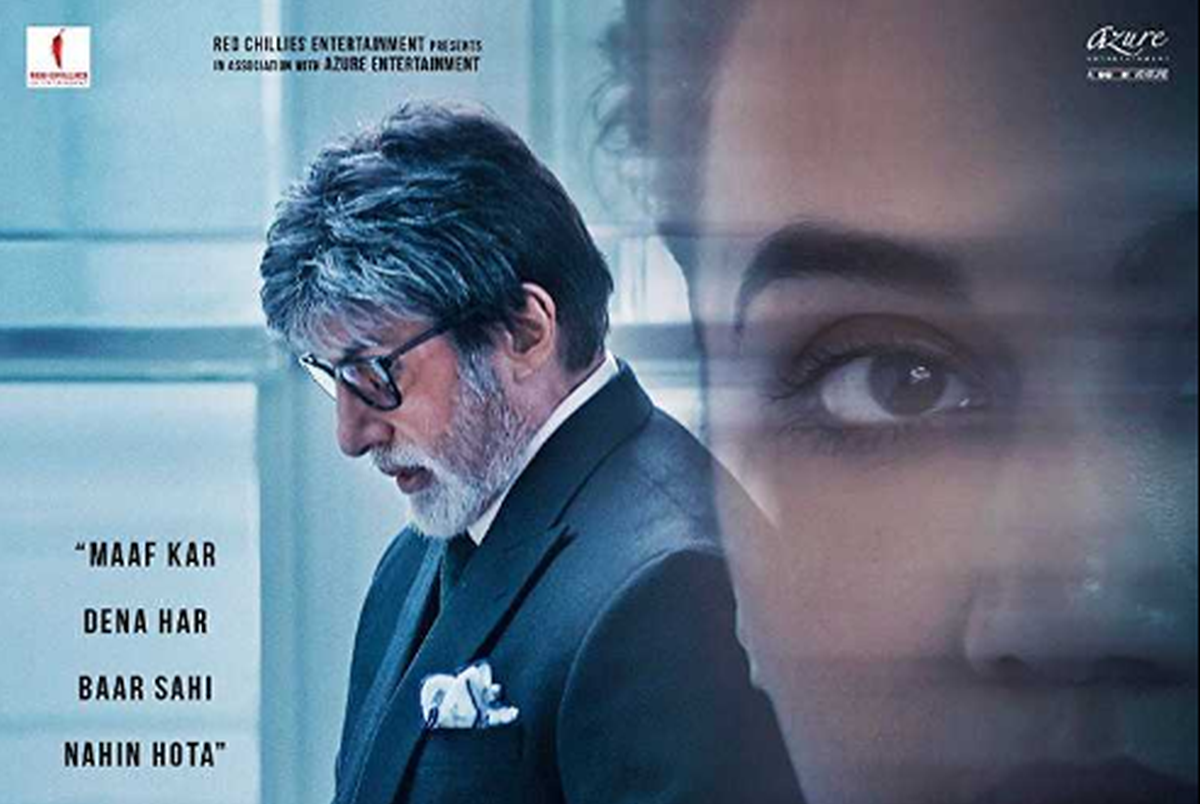Trolled for cybercrime caller tune, Amitabh Bachchan says: “Sarkar ko bolo bhai”
For the unversed, this government-issued caller tune has been playing on phones across the country, reminding people to stay alert against online frauds.
Badla is a fairly simple film. A whodunit from the beginning, keeps the viewers engaged even though they know for sure which way the story is headed.
Amandeep Narang | New Delhi | March 8, 2019 5:32 pm | Updated : March 9, 2019 11:15 am

(Photo: IMDb)
Film: Badla
Director: Sujoy Ghosh
Advertisement
Cast: Amitabh Bachchan, Taapsee Pannu, Amirta Singh, Manav Kaul, Tony Luke
Advertisement
Rating: 3
Badla is a fairly simple film. A whodunit from the beginning, adapted from a Spanish flick, keeps the viewers engaged even though they know for sure which way the story is headed.
The entire narrative is given away in the first 15-20 minutes of the film, and with a split second scene, the viewer knows at least where the allegiances lie. But, even having known the story and its screenplay from the parent film, Sujoy Ghosh is to be credited for keeping the film engaging. In fact, the pace gets better in the second half.
However, it isn’t a film that will keep you hooked to the extent that one look away from the screen and you will miss out on what is happening.
If the storyline is predictable, so are the actors’ performances. While Amitabh Bachchan plays the fairly-righteous hero, it was Taapsee’s character that drew attention. Her part had been written extremely well, and what is commendable about her is that she rarely brings the “I” in the character she plays — a trait in an actor’s performance to look up to. She plays her character without any burden or guilt, which is a feat.
If not the entire film, the dialogues were repetitive, and the descriptions too. There were a few Sidney Lumet moments, like apart from a few perfect show and tell scenes (the description and narration of the after- murder scene by Amitabh Bachchan, that runs parallel with the visuals of police investigation), it seemed off.
There was a sense of claustrophobia, with dialogues, which perhaps could be a deliberate attempt. In fact, Taapsee reiterates it to Amitabh, what he says to her, to the point when she herself says “I am a bit tired of this ‘details’ talk”. That comment could be taken literally!
Even the sub-text of Mahabharata – the constant parallels drawn by Badal Gupta (Amitabh Bachchan) between himself as (Dhrithrashtra) and Naina Gupta (Taapsee Pannu) as Sanjay, and then the Draupadi metaphor that closes the film, it felt too deliberate. In fact, the tagline of the film, “Badla lena har baar zaroori nahi, par har baar maaf kar dena bhi…” is what Draupadi says in Mahabharata. This narrative runs side by side along the film and perhaps, is almost like a laugh out at those who are unaware of the epic. Almost like when Badal Gupta mocks Naina as she says she just knows the “basic storyline” of Mahabharata. It is like an underlying threat that “we will play by the rules and parallels of the epic you don’t know anything about”. This metaphor kind of Indianises the entire Glasgowian landscape of The Invisible Guest. Ghosh’s use of Indian characters in key roles everywhere makes the film in foreign land feel new since that is not the general trend followed.
What is interesting is that the audience is led into the trap of believing the most sought after killer, the-one-who-has-nothing-to-lose-now and that revenge will be a perfect motif of a killer, is the classic-murder-motif of the whodunit genre. The mystery of the film opened like an Agatha Christie novel, most close to perhaps The Murder of Roger Ackroyd.
A favourite moment of the film was where Amitabh Bachchan calls out Naina’s name, who is too engrossed in telling her story: when she and her lover (Arjun) are sitting in the car, the voice of the lawyer calls out her name, and she turns around in the car itself, as if to answer to the lawyer who is (not in reality) sitting in the back seat. It was very different to be seen in a genre of this kind and in the films that are generally label as commercial and mainstream. The voice called her out of a scene, and her head, that was a very natural layer.
Another mentionable fact is the opening credits. The music was energetic and forceful, almost like giving a sense into what was to follow, like defining the style of the film. But that didn’t follow. Apart from swapping the genders of the two main characters, Ghosh more or less stuck to the screenplay of the Spanish writer-director Oriol Paulo. The sense that the opening credits music created was an expectation that went unfulfilled, which was perhaps deliberate. Otherwise, the music of the film is classic, most suitable to the genre it addresses.
No running behind witnesses, crime scenes, looking for clues etc. All was there on the table and from there the cat and mouse game was being played and judged. If I were to generalize, the film was like a fast forward to the last scene of every book of this kind of genre, or even film for that matter. The entire film played out in the confrontation between the murderer and the detective (mostly the culminating scene always), a play of space and time, well utilised.
Advertisement
For the unversed, this government-issued caller tune has been playing on phones across the country, reminding people to stay alert against online frauds.
The restoration is the result of a meticulous three-year project carried out by the Film Heritage Foundation in collaboration with Sippy Films Pvt. Ltd.
With these words, he made it clear that inheritance, for him, is not automatic. It’s something you should earn. And in his eyes, Abhishek has done just that.
Advertisement
